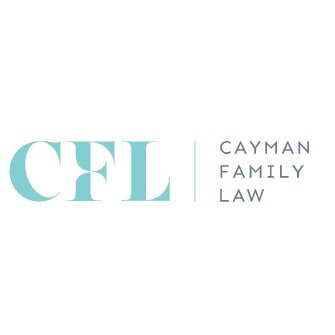Best Marriage Lawyers in Cayman Islands
Share your needs with us, get contacted by law firms.
Free. Takes 2 min.
Free Guide to Hiring a Family Lawyer
Or refine your search by selecting a city:
List of the best lawyers in Cayman Islands
About Marriage Law in Cayman Islands
Marriage in the Cayman Islands is regulated by the Marriage Law, which outlines the legal requirements and procedures for getting married in the territory. This law governs matters such as eligibility to marry, the process of obtaining a marriage license, and the rights and responsibilities of married couples.
Why You May Need a Lawyer
There are various situations in which you may require legal assistance in the field of Marriage in Cayman Islands. Some common reasons include prenuptial agreements, divorce proceedings, property rights, child custody, and disputes over marriage contracts. A lawyer can provide guidance and representation to ensure your rights are protected.
Local Laws Overview
In Cayman Islands, individuals must be at least 18 years old to legally marry. Both parties must be present to apply for a marriage license, which can be obtained from the General Register Office. The marriage ceremony must be conducted by a licensed marriage officer, and the marriage certificate must be registered with the authorities.
Frequently Asked Questions
1. Can same-sex couples get married in Cayman Islands?
As of now, same-sex marriage is not legally recognized in the Cayman Islands.
2. What are the legal requirements for getting married in Cayman Islands?
Both parties must be at least 18 years old, present valid identification, and apply for a marriage license at the General Register Office.
3. How can I file for divorce in Cayman Islands?
To file for divorce, you must meet the residency requirements and grounds for divorce as outlined in the Matrimonial Causes Law.
4. Can I get a prenuptial agreement in Cayman Islands?
Yes, prenuptial agreements are legally recognized in Cayman Islands and can be drafted with the assistance of a lawyer.
5. What are my rights in a common-law marriage?
Common-law marriages are not legally recognized in Cayman Islands, so partners do not have the same rights as legally married couples.
6. How is property divided in a divorce in Cayman Islands?
Property division in a divorce is based on the Matrimonial Causes Law, which considers factors such as contributions to the marriage and financial needs of each party.
7. Can I change my name after getting married?
Yes, you can change your name after marriage by following the legal procedures outlined in the Marriage Law.
8. How do I adopt a child in Cayman Islands?
Adoption procedures in Cayman Islands are governed by the Adoption Law and require a thorough assessment process before approval.
9. What are the rights of children born outside of marriage?
Children born outside of marriage have the same legal rights as children born within a marriage, including rights to financial support and inheritance.
10. Can I annul my marriage in Cayman Islands?
An annulment can be granted in certain circumstances, such as if the marriage was void or voidable from the beginning.
Additional Resources
For more information on Marriage Law in Cayman Islands, you can contact the General Register Office or seek guidance from the Cayman Islands Legal Practitioners Association.
Next Steps
If you require legal assistance in the field of Marriage in Cayman Islands, it is advisable to consult with a qualified lawyer who specializes in family law. They can offer personalized advice and representation to help you navigate the legal complexities of marriage and protect your rights.
Lawzana helps you find the best lawyers and law firms in Cayman Islands through a curated and pre-screened list of qualified legal professionals. Our platform offers rankings and detailed profiles of attorneys and law firms, allowing you to compare based on practice areas, including Marriage, experience, and client feedback.
Each profile includes a description of the firm's areas of practice, client reviews, team members and partners, year of establishment, spoken languages, office locations, contact information, social media presence, and any published articles or resources. Most firms on our platform speak English and are experienced in both local and international legal matters.
Get a quote from top-rated law firms in Cayman Islands — quickly, securely, and without unnecessary hassle.
Disclaimer:
The information provided on this page is for general informational purposes only and does not constitute legal advice. While we strive to ensure the accuracy and relevance of the content, legal information may change over time, and interpretations of the law can vary. You should always consult with a qualified legal professional for advice specific to your situation.
We disclaim all liability for actions taken or not taken based on the content of this page. If you believe any information is incorrect or outdated, please contact us, and we will review and update it where appropriate.
Browse marriage law firms by city in Cayman Islands
Refine your search by selecting a city.
















